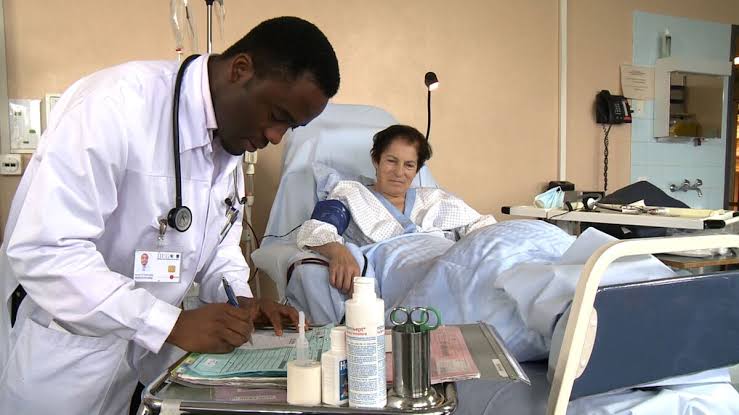I believe you’re probably thinking about taking your medical career to Europe. Maybe you’ve seen job offers floating around online or heard from a friend that doctors and nurses get paid better over there. Or maybe you’re just done with the hustle in your country and want something new, stable, and exciting. Whatever your reason, you’ve got your eye on Europe — and honestly, that’s a good plan.
But here’s the deal: getting a medical job in Europe as a non-EU citizen? Yeah… it’s not exactly as easy as ABC. It takes some paperwork, patience, a bit of luck, and a whole lot of persistence. That said, plenty of people have done it. And if they can do it, there’s no reason you can’t either.
Let’s break it all down in easy ways for you.
Step-by-Step Guide to Landing a Medical Job in Europe as a Non-EU Citizen
Are you a doctor, nurse, dentist, or technician? Then there’s space for skilled hands and sharp minds like yours. But let’s be truthful; it’s not exactly a walk in the park. There are a few stones to jump through, forms to fill out, and exams to pass. Still, it’s actually possible, and this step-by-step guide is here to make the journey easier for you.
Step 1: Choose a Country
This is a big one. Europe isn’t just one place; it’s a whole collection of countries, and every single one of them does things their own way. Germany doesn’t work like Ireland, and what works in Sweden might not fly in Spain. You’ve got to pick where you’re aiming for.
If you’re chasing English-speaking countries, your options are limited but it’s still possible. Something like Ireland or, if you’re lucky, maybe the UK (though Brexit kind of made that trickier). If you’re cool with learning a new language, your options open way up — Germany, France, Austria, the Nordic countries. A lot of them are crying out for healthcare workers, by the way.
So before anything, figure out where you’re heading. That decision will guide everything else — from which exams you’ll take to what documents you’ll need.
Step 2: Make Sure Your Medical Degree is Valid
Here comes the fun part. Just because you’re a licensed doctor, nurse, or pharmacist where you are now doesn’t mean Europe will take your word for it. Nah. They want proof. Solid, verified, bureaucracy-approved proof.
This process is usually called degree recognition or equivalence, and yeah, it can be annoying. You’ll probably need to send in your transcripts, licenses, maybe even course outlines, depending on the country. Some countries will just say, “Cool, you’re good to go.” Others will go, “Hmm, take this exam first.”
Germany, for example, has something called the Kenntnisprüfung. It’s basically a test to prove your knowledge matches their standards. Some countries want you to do a medical adaptation period or internship. It’s very country-specific, and you’ll need to dig deep into that particular country’s medical council website to know what exactly they want.
Step 3: Learn the Language
Alright, here’s a huge stumbling block for a lot of people: language. In most European countries, you can’t just stroll into a hospital and start talking to patients in English. Not unless you’re in England, Ireland or maybe the Netherlands in rare cases.
So if you’re looking at Germany, you need German. France? French. Spain? You guessed it should be Spanish of course. And we’re not talking basic “hello-how-are-you” kind of stuff. They want you fluent enough to write medical reports and explain treatments to patients. That means at least B2 or C1 level proficiency in most cases.
Is it hard? Sure. Is it impossible? Nope. If working in Europe is your goal, learning the language is just one step in the process. And honestly, once you’re there, being able to speak to your patients makes your life so much easier anyway.
Step 4: Register as a Medical Professional
Once your degree is accepted and you’ve got the language sorted, now you’ve got to officially register with the country’s medical council. This is non-negotiable. Without this registration, you literally cannot legally work.
This step might involve:
- More document submissions (they love those).
- Police clearance or proof of good character.
- Proof of language proficiency.
- Sometimes an interview or skills assessment.
Each country has its own council, like the GMC in the UK or the Medical Council of Ireland. You’ll need to apply directly to them and follow their specific process. Again, it’s mostly paperwork, but it takes time and patience.
Step 5: Secure a Visa
Now that you’ve got the green light to work, the next big thing is — yeah, you guessed its a work visa. Since you’re not from the EU, you don’t have automatic freedom of movement. So you need legal permission to live and work there.
In many cases, this means you’ll need a job offer first. Hospitals or clinics that are short-staffed may sponsor your visa, especially if they’ve had trouble hiring locally. Once you have the offer, you’ll use it to apply for the visa.
Processing time varies a lot depending on the country and how backed up their system is. So… patience, my friend. Don’t expect overnight approvals.
Step 6: Apply for Jobs
Let’s talk about finding that golden job offer. It’s not always easy, but it’s not impossible either.
Start with hospital websites, national healthcare portals, and job platforms like EURES, LinkedIn, or even local recruitment agencies. Some countries actively recruit doctors and nurses from abroad. Germany and Ireland are examples.
Make your CV clear, professional, and tailored to that country’s expectations. Your cover letter should tell your story. It should answer things like who you are, why you want to work there, and what you bring to the table. Be honest, humble, and clear.
And don’t get discouraged if you don’t hear back right away. Sometimes it takes dozens of applications before you get one callback. That’s normal.
Step 7: Passing the Interview
If you land an interview, be ready. Some interviews will be super formal, others may feel more relaxed. You’ll usually be asked about your background, how you handle patient care, and why you’re moving there.
They’ll definitely check your communication skills especially in their language. If your language skills are a bit shaky, practice a lot beforehand. It could make or break your chances.
Also, read up on how their healthcare system works. The more you understand it, the better you’ll sound in your interview.
Step 8: Move and Start Your New Life
You got the job! What’s next? Once everything clicks; you passed the exams, you got your visa, and you’ve signed the contract, you’re finally on your way. Now it’s time to move.
And let’s be real — it’s a big change. You’ll have to figure it out:
- Housing
- Public transport
- Healthcare access for yourself
- Maybe opening a bank account
- Getting used to the weather (Northern Europe is very cold…)
More than anything though, it’s the culture shift that hits the hardest. The way hospitals work might be totally different. Patient expectations, work ethics, even your responsibilities might surprise you. That’s okay. Ask questions, take your time, and stay open-minded.
Connect with other international medical workers. Join Facebook groups or WhatsApp communities. You’ll be surprised how many people are out there going through the same thing.
Wrapping It Up (Finally)
Alright, that was a lot — but that’s the real story. Getting a medical job in Europe as a non-EU citizen takes time, effort, and a whole lot of patience. But it’s 100% possible.
You’re not the first to do it, and you won’t be the last. It’s a journey, for sure. But if you’re passionate about medicine and ready to level up your life, Europe’s got space for you.
So yeah — don’t let what you have heard scare you. You got this.
We wish you all the best!



